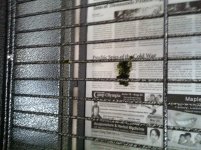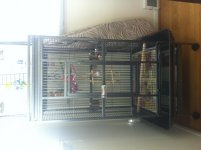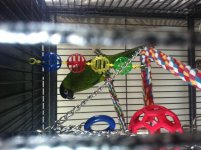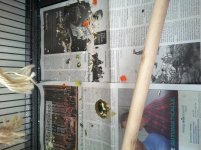tungtruong4
New member
- Jan 19, 2014
- 22
- 0
I just adopted a 3 years old nanday conure. He was hand raised but wasn't tamed. I had him for 3 days now he's still get use to his new surrounding, but I haven't seen him eat or drink anything yet. The questions I want to ask are:
1.Is it normal for my conure to have bigger poop than cockatiel?
2.About how long should I take him out and start to training him? (His attitude is like a wild bird when I got him from the breeder he was there and will make himself bigger and bit the breeder. The breeder herself had raised this bird from baby but now he's biting so she sold the bird for me with a really cheap price).
3. Can I fix his attitude to become a friendly bird?
4. Is it normal for him to sitting at 1 spot and looking around? I haven't reach my hand in his cage.
5. In this morning I found some feather on the bottom of his cage and the feathers are in varieties length 2 are short and 1 is a little bit longer.
6.Also when I called the breeder about the pooping change. She told me that it is normal for a new bird to have an abnormal poop for the first week Is that true?





1.Is it normal for my conure to have bigger poop than cockatiel?
2.About how long should I take him out and start to training him? (His attitude is like a wild bird when I got him from the breeder he was there and will make himself bigger and bit the breeder. The breeder herself had raised this bird from baby but now he's biting so she sold the bird for me with a really cheap price).
3. Can I fix his attitude to become a friendly bird?
4. Is it normal for him to sitting at 1 spot and looking around? I haven't reach my hand in his cage.
5. In this morning I found some feather on the bottom of his cage and the feathers are in varieties length 2 are short and 1 is a little bit longer.
6.Also when I called the breeder about the pooping change. She told me that it is normal for a new bird to have an abnormal poop for the first week Is that true?




